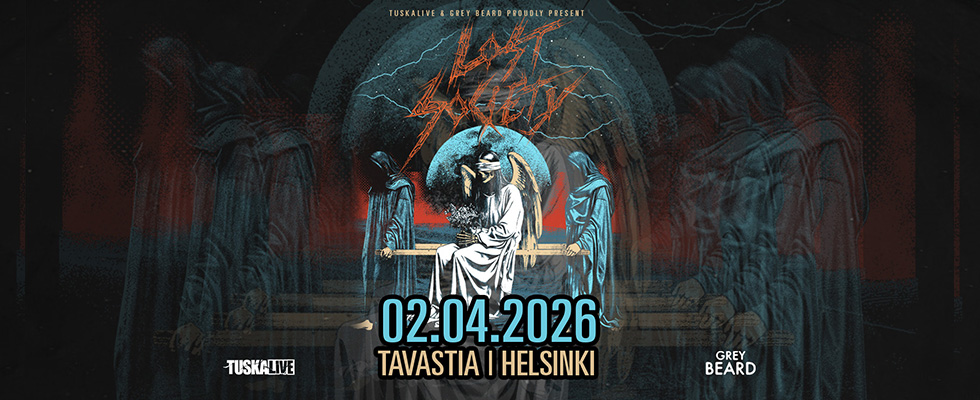Max Cavalera Sepulturan klassisen kokoonpanon hajoamisesta vuonna 1996: ”Se oli mädäntynyt yksinkertaisesti sisältäpäin”
Brasilialaisen metallilegenda Sepulturan klassinen kokoonpano hajosi vuonna 1996, kun Max Cavalera lähti riitojen päätteeksi pois yhtyeestä, eikä bändi ole sen jälkeen enää saanut rivejään kasattua soittaakseen yhdessä klassisen kokoonpanon turvin.
Max Cavalera on antanut hiljattain ranskalaiselle Heavy1/Hard Forcelle haastattelun, jossa hän on muistellut ”Roots”-albumin saamaa massiivista suosiota ja sitä, mitkä asiat johtivat lopulta yhtyeen klassisen kokoonpanon hajoamiseen. Cavalera kertoi haastattelussa äkillisen suuren suosion olleen todella vaikea asia sisäistää niin bändille kuin hänelle itselleenkin, ja lopulta yhtyeen ilmapiiri oli vain niin mädäntynyt sisältä, että kokoonpanon hajoaminen oli välttämätöntä.
Cavalera muisteli ”Roots”-albumin saamaa suosiota seuraavasti:
”The whole ’Roots’ thing is a very confusing time in my life, because I don’t think I knew how to deal with the whole fame thing very well — especially in Brazil. We went to Brazil, and the record was massive — like real, real big; like BEATLES big. And I remember I tried to go to the mall with my wife, and we got mobbed. And I knew that 70 percent of the people didn’t own a SEPULTURA record; it was just the curiosity of the celebrity thing. And that really bugged me. It was, like, ’Yeah, all these people, they don’t give a fuck. They’re just there. It’s a thing. I don’t understand this thing.’ So I struggled with that a little bit. At that time, I was drinking heavily and taking drugs. So I was wild. And, of course, it is marked by glory and tragedy. At the same time you’re commemorating this big record, there’s a big tragedy right in the middle of the thing, which is Dana’s [Wells] death,” referring to the August 1996 passing of his stepson. ”And it’s bitter, man. I don’t think I ever actually fully enjoyed what ’Roots’ brought because of that. It was cut in half, because of that. But that’s life, man.”
Kun Calaveralta kysyttiin, oliko Danan kuolema syy siihen, miksi yhtyeen rivit alkoivat pahemmin rakoilemaan, hän vastasi seuraavasti:
”The situation in the band, it had been going bad [even before that]. It wasn’t the beginning of that, but it added to it. And one of the main reasons why it added to it — a lot of people don’t know the story — we were in England, ready to do the [Monsters Of Rock festival at Castle] Donington with Ozzy [Osbourne]. And we received the news that Dana died. And my wife was in total despair. And I’m her husband; I have to comfort her. So I [flew] back to America to be with her. And I found out later that Andreas’s [Kisser, guitar] wife tried to move the body, tried to steal Dana’s body and tried to get him buried real quick so we could go back on tour. And that’s — c’mon, man. I was, like, ’Who does that?’ It seriously made me think about the people I’m making music with. Are those my real friends? It was confusing, man. And then it got worse because, eventually, they ganged up, including my brother — I cannot put him out of that thing; he was part of it — it was like a mutiny. The three guys against me, and against Gloria. So they wouldn’t talk to her. That last European tour, it was just pure misery; it was miserable. Of course, it [didn’t] show in the music; the music [was] great [and] the shows were great. But the other 23 hours of the day was fucking misery — trying to deal with that. And eventually her contract was done. They always say in the press that she got fired by those guys, but that’s not true. Her contract was actually done; she decided not to renew it. In fact, she told me, ’Go with them if you want to. It’s your choice. Don’t make me hold you back.’ And I just couldn’t do it because of things like that. There’s that kind of stuff going on — heavy stuff.
They had different ideas. One of the main ideas was to replace Gloria and a lot of our crew and people with very ’professional,’ big people. And to me, that seems a fucked-up thing to do, where the people that helped you get to that was [these] people, and now that you’re big and successful, now you can hire anybody. You’re just, like, ’All right. Fuck you. You’re done. Your shit’s done. We’re going with [these] successful people.’ I didn’t agree with that, because I think everything was going good. We were getting all the major festivals; we were supposed to headline Big Day Out in Australia, so she couldn’t be that bad of a manager, the way they envisioned.
Honestly, I think the best thing we could have done would have been to take a whole year off, and everybody should go somewhere, clear their heads and come back a year later, and talk about it,” he added. ”But even with that, there was no remedy. It’s broke — the thing is broke. It’s rotten, man, from the inside. It needed something, and eventually what it needed was separation.”
Voit katsoa videohaastattelun kokonaisuudessaan tästä:




